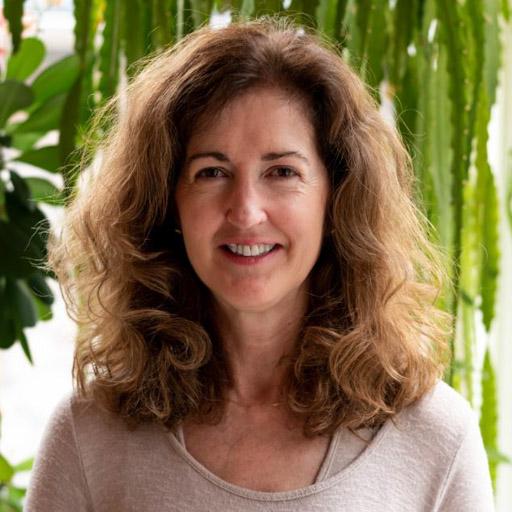
Monica E. Mulrennan, PhD
- Professor, Geography, Planning & Environment and Special Advisor to the VPRII on Research Impact
Are you the profile owner?
Sign in to editResearch areas: Indigenous stewardship; Traditional Ecological Knowledge; Indigenous conservation and protected areas; traditional fisheries; seaweed harvesting; ethno-geomorphology
Contact information
Availability:
ORCID:
Biography
Biography
Monica Mulrennan is a Full Professor in the Department of Geography, Planning & Environment at Concordia University, and Special Advisor to the VPRII on Research Impact. She holds a BA(Hons) and PhD in Geography from University College Dublin, Ireland. She is a founding member of CICADA (the Centre for Indigenous Conservation and Development Alternatives) at McGill University, and an honorary member of the ICCA Consortium (Indigenous Peoples’ and Community Conserved Areas and Territories).
Her research focuses on Indigenous knowledge, use and stewardship of Indigenous land-sea territories, Indigenous-led strategies of conservation and environmental protection, and local adaptations to environmental change. She has sustained research partnerships with Torres Strait Islanders, northern Queensland, and James Bay Crees (Eeyou Istchee), northern Quebec for more than twenty-five years. She has published numerous research papers and book chapters, in addition to contributing to the documentation of Indigenous land and sea claims and the establishment of Indigenous-led protected areas and conservation initiatives.
Monica joined Concordia in 1994 and has served as Associate Dean, Graduate Student Affairs, in the School of Graduate Studies(2004-08), Chair of the Department of Geography, Planning and Environment(2014-17), and Associate Vice-President, Research (Development & Impact) (2019-2025). She received Concordia University’s Academic Leadership Award in 2017.
Monica was the lead on Concordia's institutional "Pathways to Impact" initiative, and continues to contribute to that work as Concordia's delegate to the Pew-sponsored Presidents and Chancellor's Council on Public Impact Research and as Special Advisor to the VPRII on Research Impact.
Research Interests
- Indigenous stewardship
- Traditional Ecological Knowledge
- Indigenous Protected and Conserved Areas (IPCAs)
- Subsistence and small-scale fisheries
- Indigenous women and their connections to the sea
- Seaweed harvesting traditions among coastal communities
Research Activities
Current Research Projects
- “FISHES: Fostering Indigenous Small-scale fisheries for Health, Economy, and food Security”, a large-scale applied research project partly funded through Genome Canada and Genome Québec
- "A cultural history of seaweed harvesting along the West Coast of Ireland"
Graduate Student Opportunities
Monica is on administrative leave until June 30, 2026
Current and Recent Graduate Students
Post-doctoral Fellow Supervision
- Magdalena Garcia Perez De Arce (Horizon Postdoctoral Fellow, 2024-26) "Co-evolution of Indigenous knowledge and Western Science in the context of Eeyou Istchee traditional fisheries"
- Sarah Moritz (Banting Fellow, 2022) “Honouring Salmon: Relational Ecologies across Salish Worlds in the Pacific Northwest”
PhD Thesis Supervision
- Leila Vaziri Zanjani (Geography, Urban and Environmental Studies, Concordia, expected completion December 2025) Global Trends in the Creation of Indigenous Territories of Life
- Kristine Franks (Geography, Urban and Environmental Studies, Concordia, expected completion December 2025) Water Wonders: Empowering connections between youth, water, culture, tradition and technology
- Nafisa Sarwath (Geography, Urban and Environmental Studies, Concordia, expected completion December 2025) Sustaining Connections to the Land: Challenges for and Adaptation Strategies of Wemindji Eeyouch
- Véronique Bussières (INDI, Concordia) Stewards of our land: a critical analysis of indigenous stewardship in contemporary environmental governance institutions in Canada
- Annick Thomassin (Anthropology, McGill, completed May 2019 – co-supervisor with Colin Scott) Ina ngalmun lagau malu’ (This Part of the Sea Belongs to Us): Politics, Sea Rights and Fisheries Co-management in Zenadh Kes (Torres Strait)
- Annie Lalancette (SIP, Concordia, completed May 2017) Integrating indigenous perspectives into fisheries management: challenges and opportunities in Torres Strait, Northern Australia.
Master’s Thesis Supervision
- Sicily Fox (Geography, Urban and Environmental Studies, Concordia, completed September 2024)
- Kai Bruce (Geography, Urban and Environmental Studies, Concordia, completed April 2023)
- Naomi Trott (Geography, Urban and Environmental Studies, Concordia, completed April 2023)
- Brian Armstrong (Geography, Urban and Environmental Studies, Concordia, expected completion December 2023)
- Jessica Hewitt (Geography, Urban and Environmental Studies, Concordia, completed March 2021) “ya:y̓əstəl̓ (working together) with ‘letsémot (one mind/heart): Narratives of Resilience and Strategies for Resistance and Resurgence from Kwantlen First Nation, British Columbia”
- Salman Banisadr (Geography, Urban and Environmental Studies, Concordia, completed March 2021) Graduate Thesis Research as a Lens on the Discipline of Geography’s Engagement of Indigenous Communities in Canada
- Heather Elliott (Geography, Urban and Environmental Studies, Concordia, completed December 2020) Unsettling the Table: Decolonization within and through the food movement
- Chloe Boone (Geography, Urban and Environmental Studies, Concordia, completed May 2019) Relationships, language, and the land: Cree language revitalization in Wemindji Cree First Nation
Research Publications
Research Publications
Teaching
Courses Taught
|
ENVS 668 |
Indigenous Peoples and Environmental Assessment |
|
GEOG 620C |
Community Participation in Environmental Conservation |
|
GEOG 470/670 |
Environmental Management |
|
GEOG 407/607 |
Indigenous Peoples and the Environment |
|
GEOG 290 |
Environment and Society |
|
GEOG 203 |
Canadian Environmental Issues (online course) |

